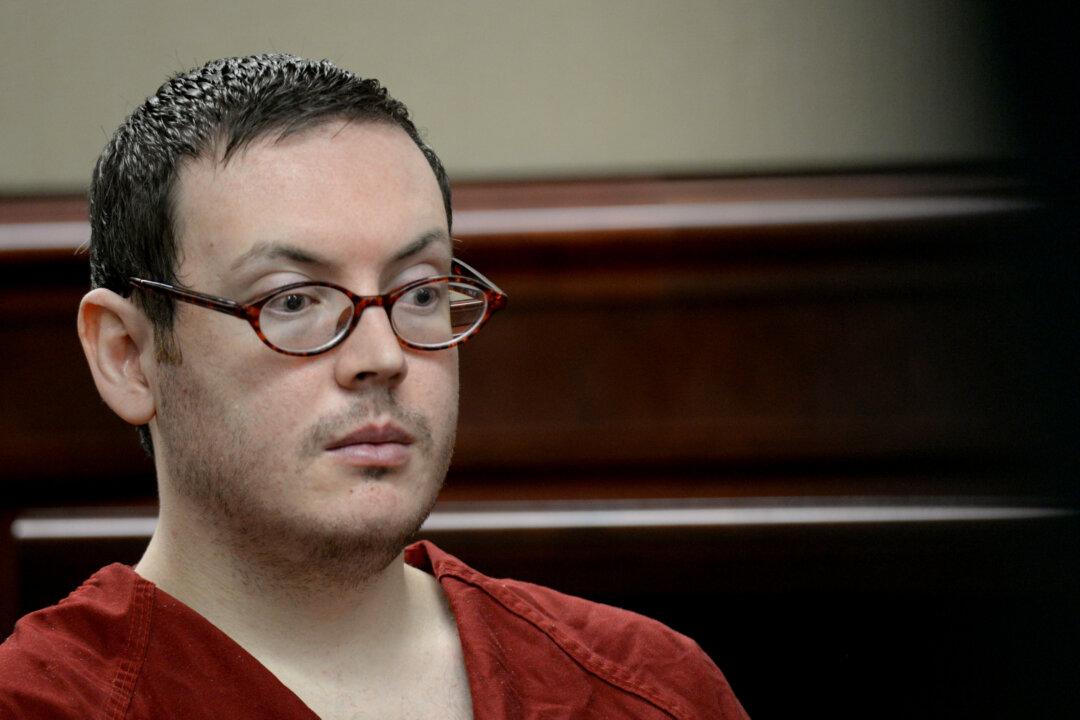CENTENNIAL, Colo.—James Holmes feels remorse for his deadly attack on a Colorado movie theater, but his mental illness and medications make it hard for him to express it, his mother told a judge in an impromptu apology for the suffering he caused.
“We know that is very, very hard for people to see,” Arlene Holmes testified during her son’s final sentencing hearing. “We cannot feel the depths of your pain. We can only listen to everything you have expressed, and we pray for you... We are very sorry this tragedy happened, and sorry everyone has suffered so much.”





